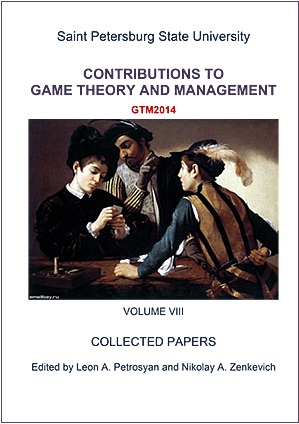Stochastic Cooperative Games Application to the Analysis of Economic Agent's Interaction
Abstract
The article deals with the development of the theory of stochastic cooperative games and also possible future directions of practical applications of this class of games are considered. The principal feature of the proposed approach to stochastic cooperative games is that it is based on the definition of the imputation as a vector, which provides the conditions of individual and group rationality with a certain (given) α the probability. Unlike previous approaches, that consider imputation in stochastic cooperative game as ”fixed” proportions, our view is to consider total utility of the coalition as a random variable, distributed among its participants. This approach introduces the concept of α-core games and consideres a number of problems that can be formulated with respect to the properties of this object.
Downloads
References
Downloads
Published
How to Cite
Issue
Section
License
Articles of "Contributions to Game Theory and Management" are open access distributed under the terms of the License Agreement with Saint Petersburg State University, which permits to the authors unrestricted distribution and self-archiving free of charge.




